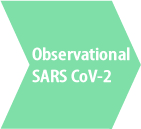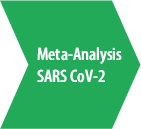It is well known that the COVID-19 virus puts a large strain on the immune system, and vitamin D is a known immune modulator. Specifically vitamin D acts as a stimulant for innate immunity and plays a role in adaptive immunity as well. The theoretic potential of this supplement has led to it being a supplement of interest with many studies looking into its possible use.
Based on current evidence there is a theoretical place in therapy, but there is a lack of randomized control trials actually showing the benefit of vitamin D supplementation. The current randomized control trials that are available have conflicting evidence. If serum vitamin D levels are checked in COVID-19 infected individuals and it is found to be low, then this should be correct, as is standards of therapy.
 = Supporting use article = Supporting use article |
 = Neutral Article = Neutral Article |
 = Contradicting use article = Contradicting use article |

 |
 |
 |
   |
    |
    |
Major peer-reviewed studies
 Randomized Control Trial
Randomized Control Trial
-
 "Effect of calcifediol treatment and best available therapy versus best available therapy on intensive care unit admission and mortality among patients hospitalized for COVID-19: A pilot randomized clinical study" Entrenas Castillo M, Entrenas Costa LM, Vaquero Barrios JM, Alcalá Díaz JF, López Miranda J, Bouillon R, Quesada Gomez JM. "Effect of calcifediol treatment and best available therapy versus best available therapy on intensive care unit admission and mortality among patients hospitalized for COVID-19: A pilot randomized clinical study". J Steroid Biochem Mol Biol. 2020 Oct;203:105751. doi: 10.1016/j.jsbmb.2020.105751. Epub 2020 Aug 29. PMID: 32871238; PMCID: PMC7456194.
"Effect of calcifediol treatment and best available therapy versus best available therapy on intensive care unit admission and mortality among patients hospitalized for COVID-19: A pilot randomized clinical study" Entrenas Castillo M, Entrenas Costa LM, Vaquero Barrios JM, Alcalá Díaz JF, López Miranda J, Bouillon R, Quesada Gomez JM. "Effect of calcifediol treatment and best available therapy versus best available therapy on intensive care unit admission and mortality among patients hospitalized for COVID-19: A pilot randomized clinical study". J Steroid Biochem Mol Biol. 2020 Oct;203:105751. doi: 10.1016/j.jsbmb.2020.105751. Epub 2020 Aug 29. PMID: 32871238; PMCID: PMC7456194.This is a parallel pilot randomized open label, double-masked clinical trial that was looking to evaluate the effect of calcifediol treatment on intensive care unit admissions and mortality rates among patients hospitalized for Covid-19. This study included 76 patients and allocated patients in a 2:1 ratio to calcifediol:no calcifediol. All patients received the same standard of care per hospital protocol, which was a combination of hydroxychloroquine and azithromycin. Patients in the calcifediol group received 0.532 mg orally on the day of admission and 0.266 mg orally on day 3 and 7, and then weekly until discharge or ICU admission. It was found that one patient out of 50 in the calcifediol required admission to the ICU (2%), while 13 out of 26 of the untreated patients required ICU admission (50%) and this was statistically significant. This study showed that high doses of calcifediol appear to reduce the severity of the disease, but larger trials should be conducted to help support this.
-
 "Effect of a Single High Dose of Vitamin D3 on Hospital Length of Stay in Patients With Moderate to Severe COVID-19" Murai IH, Fernandes AL, Sales LP, et al. Effect of a Single High Dose of Vitamin D3 on Hospital Length of Stay in Patients With Moderate to Severe COVID-19: A Randomized Clinical Trial. JAMA. Published online February 17, 2021.
"Effect of a Single High Dose of Vitamin D3 on Hospital Length of Stay in Patients With Moderate to Severe COVID-19" Murai IH, Fernandes AL, Sales LP, et al. Effect of a Single High Dose of Vitamin D3 on Hospital Length of Stay in Patients With Moderate to Severe COVID-19: A Randomized Clinical Trial. JAMA. Published online February 17, 2021.This was a multicenter, double-blind, randomized, placebo-controlled trial that looked to determine the effect of a single high dose of vitamin D3 on the length of hospital stays in patients with COVID-19. This study included 240 patients who either received 200,000 units of vitamin D or placebo. Patients that were included were those that were hospitalized and had moderate-severe COVID-19 infections. It was found that in hospitalized patients, a single high dose of vitamin D did not significantly reduce the length of the hospital stay.
Major peer-reviewed studies providing context for therapy
 Meta-analysis
Meta-analysis
-
 “Vitamin D deficiency aggravates COVID-19: systematic review and meta-analysis” Pereira M, Dantas Damascena A, Galvão Azevedo LM, de Almeida Oliveira T, da Mota Santana J. Vitamin D deficiency aggravates COVID-19: systematic review and meta-analysis. Crit Rev Food Sci Nutr. 2020 Nov 4:1-9. Epub ahead of print. PMID: 33146028.
“Vitamin D deficiency aggravates COVID-19: systematic review and meta-analysis” Pereira M, Dantas Damascena A, Galvão Azevedo LM, de Almeida Oliveira T, da Mota Santana J. Vitamin D deficiency aggravates COVID-19: systematic review and meta-analysis. Crit Rev Food Sci Nutr. 2020 Nov 4:1-9. Epub ahead of print. PMID: 33146028.This is a systematic review and meta-analysis looking to analyze the association between vitamin D deficiency and COVID-19. Studies were included if they were observational studies measuring serum vitamin D in adult and elderly subjects with COVID-19. The main outcome was prevalence of vitamin D deficiency in severe COVID-19 cases. Ultimately it was found that vitamin D deficiency was not associated with a higher chance of infection, but it was found that the patients with severe COVID-19 had higher rates of vitamin D deficiency than mild cases.
-
 “Vitamin D insufficiency as a potential culprit in critical COVID-19 patients” Munshi R, Hussein MH, Toraih EA, Elshazli RM, Jardak C, Sultana N, Youssef MR, Omar M, Attia AS, Fawzy MS, Killackey M, Kandil E, Duchesne J. Vitamin D insufficiency as a potential culprit in critical COVID-19 patients. J Med Virol. 2021 Feb;93(2):733-740. Epub 2020 Oct 10. PMID: 32716073.
“Vitamin D insufficiency as a potential culprit in critical COVID-19 patients” Munshi R, Hussein MH, Toraih EA, Elshazli RM, Jardak C, Sultana N, Youssef MR, Omar M, Attia AS, Fawzy MS, Killackey M, Kandil E, Duchesne J. Vitamin D insufficiency as a potential culprit in critical COVID-19 patients. J Med Virol. 2021 Feb;93(2):733-740. Epub 2020 Oct 10. PMID: 32716073.This meta-analysis looked at six studies that were analyzing the prognostic performance of vitamin D serum levels for predicting severity of adverse outcomes related to COVID-19 infections. Ultimately it was found that patients with a poor prognosis had significantly lower vitamin D serum levels compared to those with a good prognosis.
-
 “Low vitamin D status is associated with coronavirus disease 2019 outcomes: a systematic review and meta-analysis” Liu N, Sun J, Wang X, Zhang T, Zhao M, Li H. Low vitamin D status is associated with coronavirus disease 2019 outcomes: a systematic review and meta-analysis. Int J Infect Dis. 2021 Jan 2;104:58-64. Epub ahead of print. PMID: 33401034; PMCID: PMC7833186.
“Low vitamin D status is associated with coronavirus disease 2019 outcomes: a systematic review and meta-analysis” Liu N, Sun J, Wang X, Zhang T, Zhao M, Li H. Low vitamin D status is associated with coronavirus disease 2019 outcomes: a systematic review and meta-analysis. Int J Infect Dis. 2021 Jan 2;104:58-64. Epub ahead of print. PMID: 33401034; PMCID: PMC7833186.This systematic review and meta-analysis looked to assess the association between low vitamin D levels and COVID-19. A total of ten articles including 361,934 participants were selected for the study. It was found that vitamin D deficiency or insufficiency was associated with an increased risk of COVID-19, but this was not statistically significant. It was also found that COVID-19 positive individuals had a lower vitamin D level than COVID-19 negative patients, and this was significant. Ultimately this shows a possible association between vitamin D status and COVID-19 infection, but further studies are necessary to determine the impact or possible supplementation.
 Observational Studies
Observational Studies
-
 “Cohort study to evaluate the effect of vitamin D, magnesium, and vitamin B 12 in combination on progression to severe outcomes in older patients with coronavirus (COVID-19)” Tan CW, Ho LP, Kalimuddin S, Cherng BPZ, Teh YE, Thien SY, Wong HM, Tern PJW, Chandran M, Chay JWM, Nagarajan C, Sultana R, Low JGH, Ng HJ. Cohort study to evaluate the effect of vitamin D, magnesium, and vitamin B12 in combination on progression to severe outcomes in older patients with coronavirus (COVID-19). Nutrition. 2020 Nov-Dec;79-80:111017. Epub 2020 Sep 8. PMID: 33039952; PMCID: PMC7832811.
“Cohort study to evaluate the effect of vitamin D, magnesium, and vitamin B 12 in combination on progression to severe outcomes in older patients with coronavirus (COVID-19)” Tan CW, Ho LP, Kalimuddin S, Cherng BPZ, Teh YE, Thien SY, Wong HM, Tern PJW, Chandran M, Chay JWM, Nagarajan C, Sultana R, Low JGH, Ng HJ. Cohort study to evaluate the effect of vitamin D, magnesium, and vitamin B12 in combination on progression to severe outcomes in older patients with coronavirus (COVID-19). Nutrition. 2020 Nov-Dec;79-80:111017. Epub 2020 Sep 8. PMID: 33039952; PMCID: PMC7832811.This study was a cohort observational study that looked at the clinical outcomes of 43 hospitalized patients >50 yrs old with COVID-19 who received a combination of vitamin D 1000 IU/d, magnesium 150 mg/d, and vitamin B12 500 mcg/d, all orally. The primary outcome was deterioration leading to any form of oxygen therapy, intensive care support, or both. There were 17 patients who received the treatment and 26 who did not, and baseline demographics were significantly different in age, with the control group being an older population (58.4 yrs vs 64.7 yrs). Multivariate analysis showed fewer treated patients required oxygen therapy. This study supports further investigation with larger trials.
-
 “High-Dose Cholecalciferol Booster Therapy is Associated with a Reduced Risk of Mortality in Patients with COVID-19: A Cross-Sectional Multi-Centre Observational Study” Ling SF, Broad E, Murphy R, Pappachan JM, Pardesi-Newton S, Kong MF, Jude EB. High-Dose Cholecalciferol Booster Therapy is Associated with a Reduced Risk of Mortality in Patients with COVID-19: A Cross-Sectional Multi-Centre Observational Study. Nutrients. 2020 Dec 11;12(12):3799. PMID: 33322317; PMCID: PMC7763301.
“High-Dose Cholecalciferol Booster Therapy is Associated with a Reduced Risk of Mortality in Patients with COVID-19: A Cross-Sectional Multi-Centre Observational Study” Ling SF, Broad E, Murphy R, Pappachan JM, Pardesi-Newton S, Kong MF, Jude EB. High-Dose Cholecalciferol Booster Therapy is Associated with a Reduced Risk of Mortality in Patients with COVID-19: A Cross-Sectional Multi-Centre Observational Study. Nutrients. 2020 Dec 11;12(12):3799. PMID: 33322317; PMCID: PMC7763301.This was a retrospective multicenter cross-sectional observational study that was looking to determine whether vitamin D levels and/or deficient vitamin D status affects mortality in patients infected with COVID-19. A total of 986 hospitalized patients with COVID-19 were included, with 151 patients receiving cholecalciferol. It was found that the cholecalciferol group was associated with a reduced risk of COVID-19 after adjusting for potential confounders. This study showed that regardless of serum vitamin D at baseline there appears to be a reduced risk of mortality in inpatients with COVID-19. Future clinical studies are recommended to confirm this finding.
Pre-peer reviewed/pre-publication studies
 Randomized Control Trial
Randomized Control Trial
-
 “Calcifediol treatment and COVID-19-related outcomes” Nogues X, Ovejero D, Quesada-Gomez JM, Bouillon R, Arenas D, Pascual J, Villar-Garcia J, Rial A, Gimenez-Argente C, Cos ML, Rodriguez-Morera J, Campodarve I, Guerri-Fernandez R, Pineda-Moncusi M, Garcia-Giralt N. Calcifediol treatment and COVID-19-related outcomes. The Lancet. 22 Jan 2021.
“Calcifediol treatment and COVID-19-related outcomes” Nogues X, Ovejero D, Quesada-Gomez JM, Bouillon R, Arenas D, Pascual J, Villar-Garcia J, Rial A, Gimenez-Argente C, Cos ML, Rodriguez-Morera J, Campodarve I, Guerri-Fernandez R, Pineda-Moncusi M, Garcia-Giralt N. Calcifediol treatment and COVID-19-related outcomes. The Lancet. 22 Jan 2021.This study was looking to determine the effect of calcifediol on ICU admissions and mortality in patients admitted for COVID-19. This study looked at a total of 930 patients who were randomly assigned to receive 532 microgram of calcifediol on day 1 and 266 microgram on days 3, 7, 15, and 30 vs control (no treatment). Ultimately it was found that in patients hospitalized with COVID-19, calcifediol significantly reduced ICU admissions and mortality. It should be noted that this study was not placebo controlled.
Current clinical trials
- “COvid-19 and Vitamin D Supplementation: a Multicenter Randomized Controlled Trial of High Dose Versus Standard Dose Vitamin D3 in High-risk COVID-19 Patients (CoVitTrial)”
- “Vitamin D and COVID-19 Trial (VIVID)”
- “Vitamin D Supplementation in Patients With COVID-19”
- “Vitamin D and COVID-19 Management”
- “PRevention of COVID-19 With Oral Vitamin D Supplemental Therapy in Essential healthCare Teams (PROTECT)”
- “Effect of Vitamin D on Morbidity and Mortality of the COVID-19 (COVID-VIT-D)”
- “Vitamin D on Prevention and Treatment of COVID-19 (COVITD-19)”
- “Efficacy of Vitamin D Supplementation to Prevent the Risk of Acquiring COVID-19 in Healthcare Workers (COVID-19)”
- “Vitamin D Supplementation in the Prevention and Mitigation of COVID-19 Infection (VitD-COVID19)”
- “The Effect of Vitamin D Therapy on Morbidity and Mortality in Patients With SARS-CoV 2 Infection”